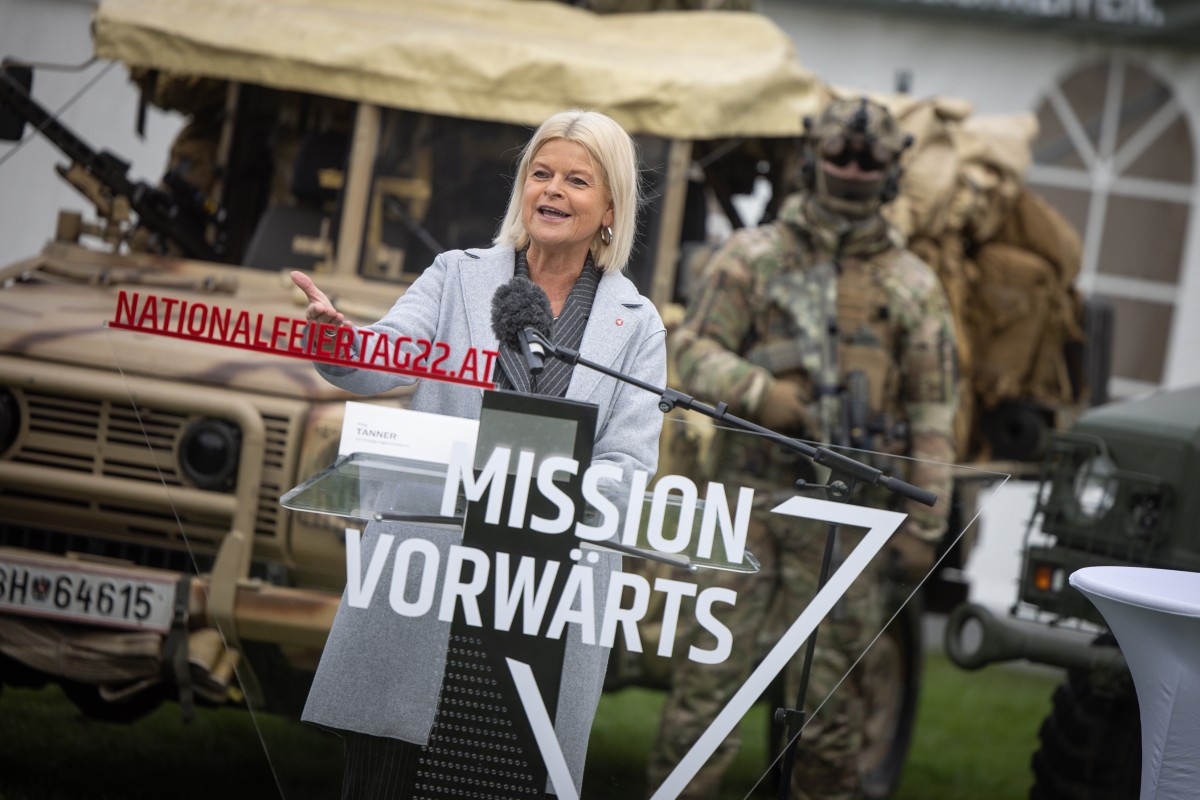Sponsored Content
Austrian Defence Minister Tanner and European Consensus on Continuation of UNIFIL Mission in Lebanon
The UNIFIL mission in Lebanon, which has been in operation since 1978, is to continue despite increasing attacks. The European troop contributors reaffirm their support to ensure stability and humanitarian aid.
 After the video conference, Austria's Defense Minister Klaudia Tanner emphasized that the European countries are united in continuing the UNIFIL mission despite the attacks. / Picture: © Bundesheer Events / Flickr Attribution-NonCommercial-ShareAlike 2.0 Generic (CC BY-NC-SA 2.0)
After the video conference, Austria's Defense Minister Klaudia Tanner emphasized that the European countries are united in continuing the UNIFIL mission despite the attacks. / Picture: © Bundesheer Events / Flickr Attribution-NonCommercial-ShareAlike 2.0 Generic (CC BY-NC-SA 2.0)
Following a video conference with the 16 European countries contributing troops to the UNIFIL mission in Lebanon, Austria's Defense Minister Klaudia Tanner reported on the unity to continue the mission, as reported by ORF. Despite the increasing attacks on the UN blue helmets, the EU countries emphasized their joint…
or Log In
Fast News Search





